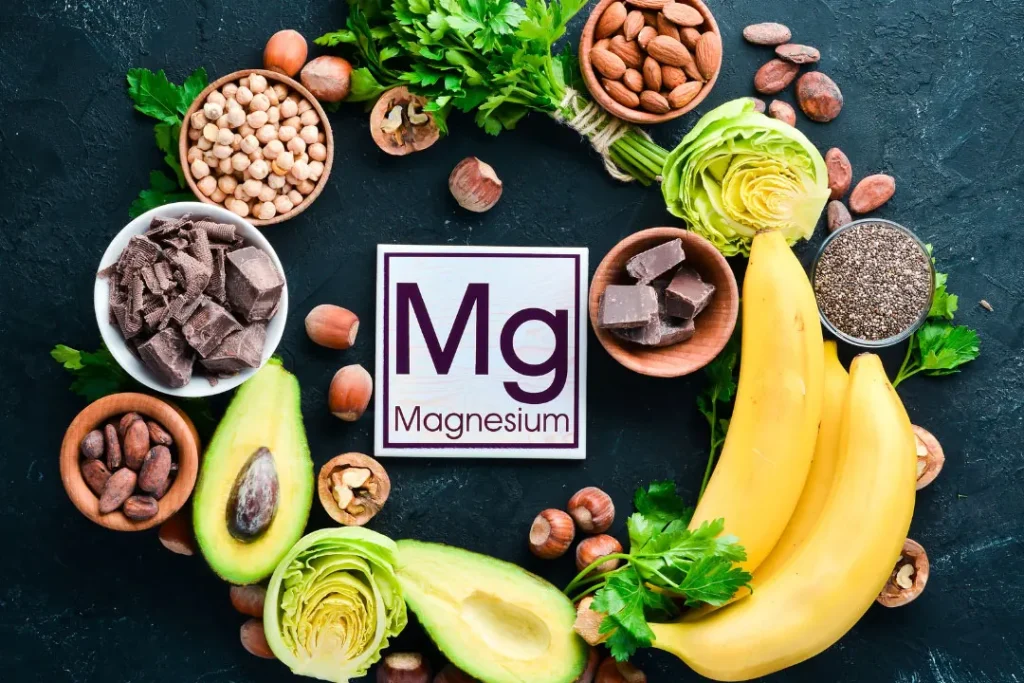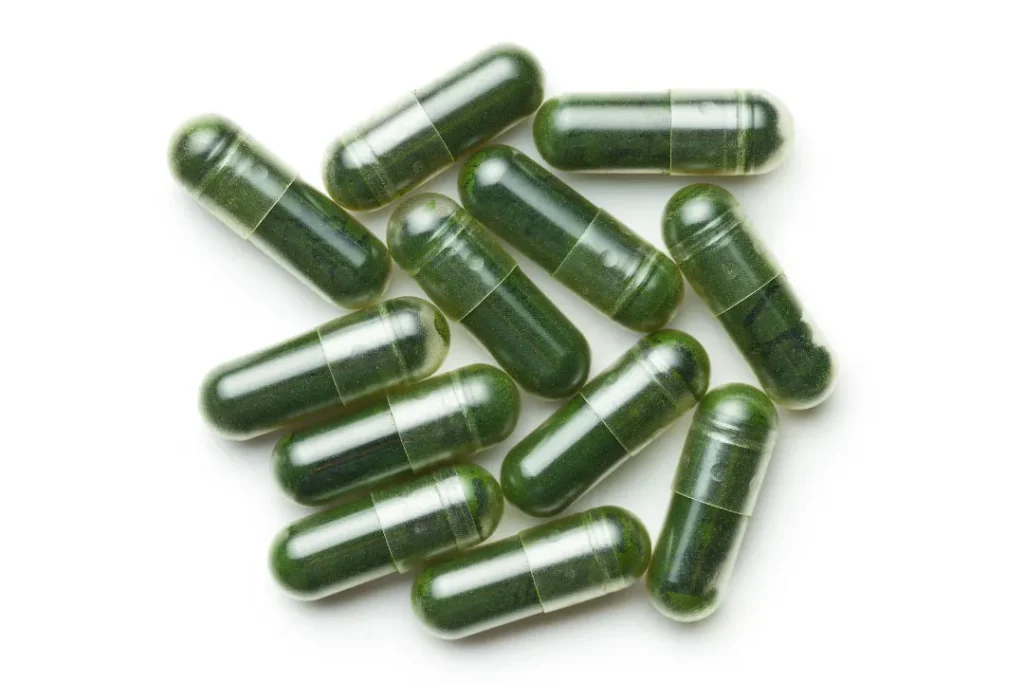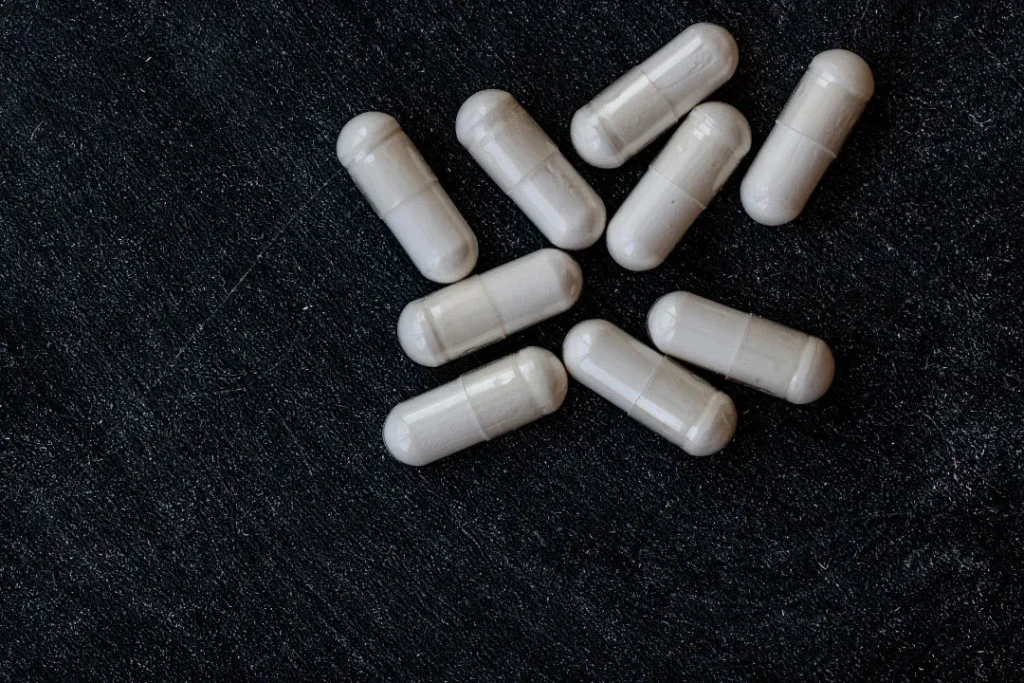Chlorella is a single-celled, freshwater green algae. Chlorella contains chlorophyll, protein, and vitamin content, all of which contribute to a wide range of possible positive effects on your health. Chlorella can potentially improve your cholesterol as well as be a part of the treatment plan for various other health conditions. It can be consumed as a powder, tablet, and extract. This article will provide further information on Chlorella, should you choose to consume it yourself as part of a healthy diet and lifestyle.
You May Also Like:
Cognitex Elite vs. GAMMA BrainLuxury
Capers: Benefits, Dosage, Side Effects, Drug Interactions, and Other Important Information
Chlorella: Benefits, Dosage, Side Effects, Drug Interactions, and Other Important Information is an original (NootropicsPlanet) article.
The Nature of Chlorella
Chlorella is a microorganism, and its size ranges from 2 to 10 micrometers in diameter. Chlorella is a eukaryotic organism. The presence of chlorophyll gives it Chlorella its characteristic, vibrant, green coloring.
Chlorella contains a high percentage of proteins, about 50–60% based on its dry weight, in addition to it being a food containing carbs and lipids. Moreover, Chlorella possesses a high concentration of vital minerals, such as magnesium, zinc, and iron.

Health Benefits of Chlorella
Chlorella’s high chlorophyll content is a factor in how it binds to and eliminates heavy metals and other harmful poisons found inside the body. When you consume Chlorella, these harmful substances will bind to it and be flushed out via urine, feces, and other body excretions.
In a number of studies, data shows that Chlorella lowers cholesterol levels, consequently decreasing the risk of cardiovascular disease.Scientists have linked the intake of Chlorella to decreased blood pressure, which may be caused by the presence of specific peptides that enhance vascular function.
Chemistry of Chlorella
Chlorella provides all of the essential amino acids for strong health as well as contains carotenoids, which are antioxidants.
In addition, Chlorella is an excellent food source of different vitamins, including vitamin C, many B vitamins (B1, B2, B3, B5, B6, and B12), and vitamin E. Chlorella is unique in that it is a plant source containing vitamin B12. It is an especially excellent dietary supplement for vegetarians and vegans who may have trouble getting enough of this in their diets otherwise.
Furthermore, the lipid composition of Chlorella contains omega-3 fatty acids, which have a variety of health advantages.
Physiological Mechanisms of Action
Consuming Chlorella provides support for your immune system because of its high nutritional content, which aids and improves your immune response and increases your resistance to a wide variety of infections.
Chlorella has high levels of niacin, fiber. and carotenoids. These have the potential to lowering of LDL cholesterol (also known as “bad” cholesterol) and raising HDL cholesterol (also known as “good” cholesterol), and therefore possibly reducing your risk of cardiovascular illnesses.
Chlorella possesses specific peptides that lower blood pressure. These peptides may have a beneficial effect on arterial function, resulting in improved blood pressure.

Optimal Dosage of Chlorella
There is no one standard dose for Chlorella. That said, the average dosages used in scientific investigations vary from 2 to 15 grams per day, and they are often broken up into many doses, as opposed to fewer, larger doses. You should visit your healthcare physician to determine the optimal dose of Chlorella before initiating supplementation.
Side Effects of Chlorella
Chlorella is usually thought to be harmless, although it has the potential to trigger adverse reactions in certain people. These reactions include digestive distress, such as diarrhea, nausea, gas, and stomach cramps. In very unusual instances, Chlorella causes allergic responses, such as hives and rashes. If you develop adverse effects after consuming Chlorella, consult your doctor and consider pausing your doses until the symptoms subside.

Potential Substance Interactions with Chlorella
It is possible for Chlorella to interact with immunosuppressant medicines, and if it does, the effects of such treatments might be mitigated by the immune-boosting qualities of Chlorella. People who are taking these kinds of drugs have to proceed with caution and discuss the matter with their primary care physician(s) before beginning to use Chlorella supplements.
Responsible Use of Chlorella
Chlorella supplements may vary in quality; thus, it is essential to purchase your product from a reliable seller in order to guarantee that the product is both safe and effective.
Chlorella, because to its extensive nutrient profile and the myriad of positive effects that this profile has on one’s health, has an exciting potential as a dietary supplement. However, similar to the usage of any dietary supplement, its consumption needs to be individualized and tailored to the specific requirements of each person, keeping an eye on minimizing any potential risks.

Chlorella: Conclusion
Chlorella is an algae with powerful potential to augment your health status. It can help your cholesterol, blood pressure, and more. Chlorella is a supplement that is rich in vitamins, minerals, fiber, and antioxidants. It is a helpful supplement to consume whether you are a vegetarian, vegan, or carnivore. Using Chlorella, as part of a balanced dietary and fitness plan, can serve as a nutrient rich choice.
References:
- What are the health benefits of Chlorella? Retrieved From: https://www.medicalnewstoday.com/articles/can-consuming-grapes-daily-increase-certain-gut-bacteria#Study-limitations
- Effect of Chlorella supplementation on cardiovascular risk factors: A meta-analysis of randomized controlled trials. Retrieved From: https://pubmed.ncbi.nlm.nih.gov/29037431/
- The Nutritional Efficacy of Chlorella Supplementation Depends on the Individual Gut Environment: A Randomised Control Study. Retrieved From: https://www.frontiersin.org/articles/10.3389/fnut.2021.648073/full
Important Note: The information contained in this article is for general informational purposes only, and should not be construed as health or medical advice, nor is it intended to diagnose, prevent, treat, or cure any disease or health condition. Before embarking on any diet, fitness regimen, or program of nutritional supplementation, it is advisable to consult your healthcare professional in order to determine its safety and probable efficacy in terms of your individual state of health.
Regarding Nutritional Supplements Or Other Non-Prescription Health Products: If any nutritional supplements or other non-prescription health products are mentioned in the foregoing article, any claims or statements made about them have not been evaluated by the U.S. Food and Drug Administration, and such nutritional supplements or other health products are not intended to diagnose, treat, cure, or prevent any disease.


